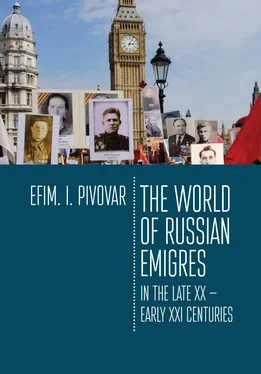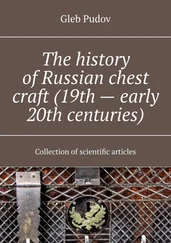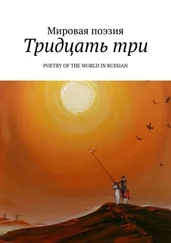In the 1990s-2000s, an intensive multidimensional dialogue between the state, the society of the Russian Federation and the world of foreign compatriots outside the former USSR ensured the restoration of the unity of cultural and historical tradition and the de-ideologization of their images. Gradually, information gaps were filled, and mental contradictions were largely smoothed out, which was facilitated by extensive contacts between Russians and communities of Russian emigrants and their descendants on a personal and public level. Hundreds of scientific publications, articles, numerous publishing and museum projects, ample information on the media convincingly testify to the fact that the legacy of the Russian emigration of the 1920 – mid-1980s has become an organic part of the Russian science and culture. Thus, many values and meanings (from deep inborn knowledge of traditions of the pre-revolutionary era to creative achievements of outstanding Russian intelligentsia in the late 20 thcentury) became a starting point for shaping modern scientific knowledge, education, art, various public initiatives.
The current modernization of the Russian Federation and the search for possible directions of its further historical development are largely related to the adoption of traditional cultural values of the Russia abroad, based on centuries-old cultural foundations. At the same time, a new vision of Russia and Russian history, including a keener and more objective view of the Soviet era and the social and cultural life in the USSR, has emerged in the Russian community abroad.
In the 1990s, the emergence of Russian-speaking communities and their socially and politically difficult life in the young states of the former Soviet republics created a completely new model of relations between the metropolis and the diaspora in the Russian history. This time Russia acted as a focal point for Russian compatriots living in “new foreign countries,” and later, after overcoming its own social and economic problems and regaining international influence, Russia became a champion of their civil rights and cultural and linguistic identity. Migration flows from the CIS and the Baltic States to Russia in the 1990s included a significant number of Russian-speaking migrants who left the territories of the young post-Soviet states due to social and political instability and changing legal status of the Russian language. The adoption of the languages of the title peoples as State languages has become a major challenge for administrative staff, teachers, and higher education teachers, especially the older generation. In addition, the Russian-speaking population was subjected to moral pressure, and, in a number of countries, to direct threats from radical nationalists with the tacit support of some local elites. The result of this process was the exodus of a mass of diploma holders and qualified workers to Russia and the West resulting in smaller number and lower quality of Russian-speaking communities in the near abroad. [14] O. Zharenova, N. Kechil, E. E. Pahomov (2002) Intellectual migration of Russians: Near and far abroad. Moscow
Later, the young generation of foreign compatriots in the post-Soviet space for the most part chose the integration into the societies of their countries, but many also sought to preserve family traditions, the Russian language. They educated their children in the spirit of the Russian culture, thus being involved in the social life of their diasporas and Russian cultural policy centers abroad. At the same time, the most socially active representatives of Russian compatriots in the CIS countries (entrepreneurs, students, artists) joined the Russian-speaking communities in Western Europe, the USA, Canada, Israel, and Australia. In the 2000s, the majority of institutional structures of the Russian community abroad outside the post-Soviet space were small Russian societies and clubs in large cities, regions or states in different countries based on the principle of association of fellow-countrymen or knowledge of the Russian language. As a rule, they were united in associations within the country. The founder and most active participants were mainly first or second-generation emigrants or citizens of the Russian Federation (as well as of other post-Soviet states) permanently residing abroad. Such associations were most common in those regions of the world where the number of Russian compatriots had increased significantly in recent years, for example in Italy, Spain, Greece, Czech Republic, Bulgaria, Germany, Norway, China, etc. By this time, the 20 thcentury emigrants and their descendants had been strongly assimilated and dissociated with the exception of communities of Russian compatriots in France and the USA. They were the largest centers of Russian emigration, which preserved the system of traditional diaspora structures (military historical societies, Russian schools and youth organizations, church parishes, publishing houses, bookstores, etc.). A key aspect of the institutional development of the modern Russian community abroad was the emergence of various communities on-line. The majority originated from international social media, feedback from readers of e-magazines in Russian, advertising needs of businesses that used the Russian-language Golden Pages and other similar information sources, etc.
The public policy of the Russian Federation on the promotion of the cultural dialogue with the Russian community abroad promotes regular World Congress of Compatriots Living Abroad and the Coordinating Council of Russian Compatriots, as well as the activities of the Russkiy Mir Foundation, Russian diplomatic institutions and representative offices of the Federal Agency for CIS Affairs, compatriots living abroad, and international humanitarian cooperation (Rossotrudnichestvo). The result of these projects was the Russian Centers of Science and Culture operating in the Russian community abroad under the auspices of Russian public and private organizations. They have helped the society of foreign compatriots to bond over their interest in the culture, language, modern life, and traditions of their historical homeland. At the same time, a considerable information space (including the Russian-language foreign press, literature, and the Internet) was filled with a lot of historical documents, memoirs, studies, popular scientific texts, which more and more fully revealed the complex, contradictory nature of historical ways of Russia and Russians in the 20 thcentury. Russian state institutions and public organizations working in the held of cooperation with foreign compatriots have created information portals that allow to develop cooperation and cultural dialogue on a global level.
The key to understanding the essence of modern dialogue between the Russian Federation and communities of foreign compatriots is the ideology of the “Russian World.” The unity of the Russian community abroad and modern Russians is being created, i. e. it is based on a mutual recognition of the common historical past and tolerance toward it. In Moscow, a participant of the 5 thWorld Congress of Compatriots Living Abroad presented the idea of the Russian world as a civilized historical and cultural community:
The Russian world is a planetary space with millions of people creating a Russian identity. And the Russian world does not need any proof of its existence! Here we have Russia with a unique and inimitable inflorescence of cultures of many ethnicities. There we have millions of our compatriots for whom the world without Tolstoy and Dostoyevsky, Tchaikovsky and Rachmaninov, Chaliapin and Hkhvorostovsky, Tupolev and Sikorsky, Rodnina and Kharlamov would be imperfect. The Russian world is a kind of noosphere, so to say, which includes both East and West. Rudyard Kipling once said ‘East is East, and West is West, and never the twain shall meet,” but in Russia, as in the Lobachevskian Geometry, those that cannot meet nevertheless do meet. [15] Speech by Alexei Lobanov, Director of “Svetoch,” the Orthodox Charitable Society for the Development of Education and Culture in Kazakhstan, ex-chairman of the World Coordination Council at the V World Congress of Compatriots Living Abroad (2015, November 5) Retrieved from http://vksrs.com/publications/vystuplenie-alekseya-lobanova-na-v-vsemirnom-kongresse-sootechestvennikov
Читать дальше












